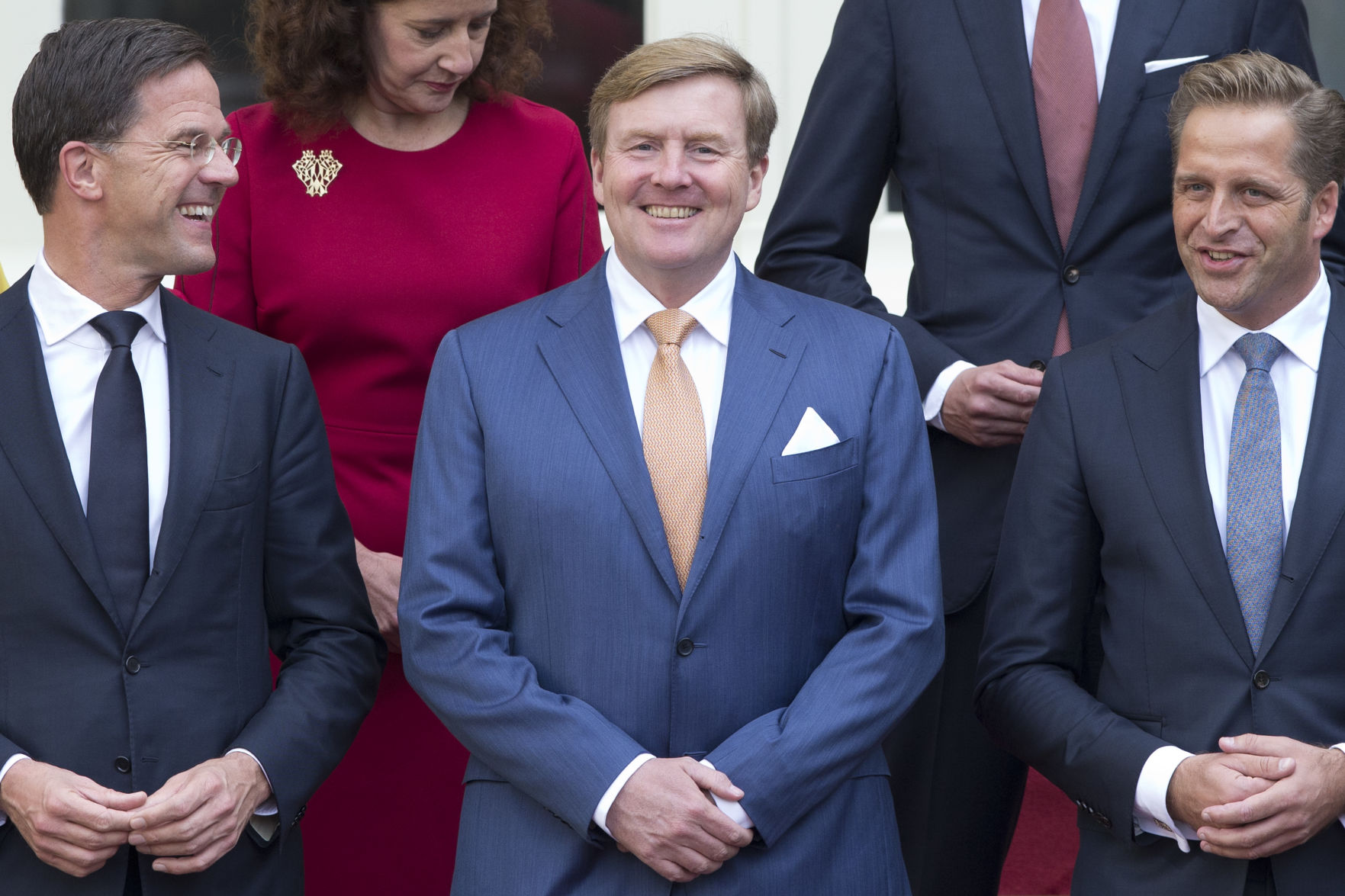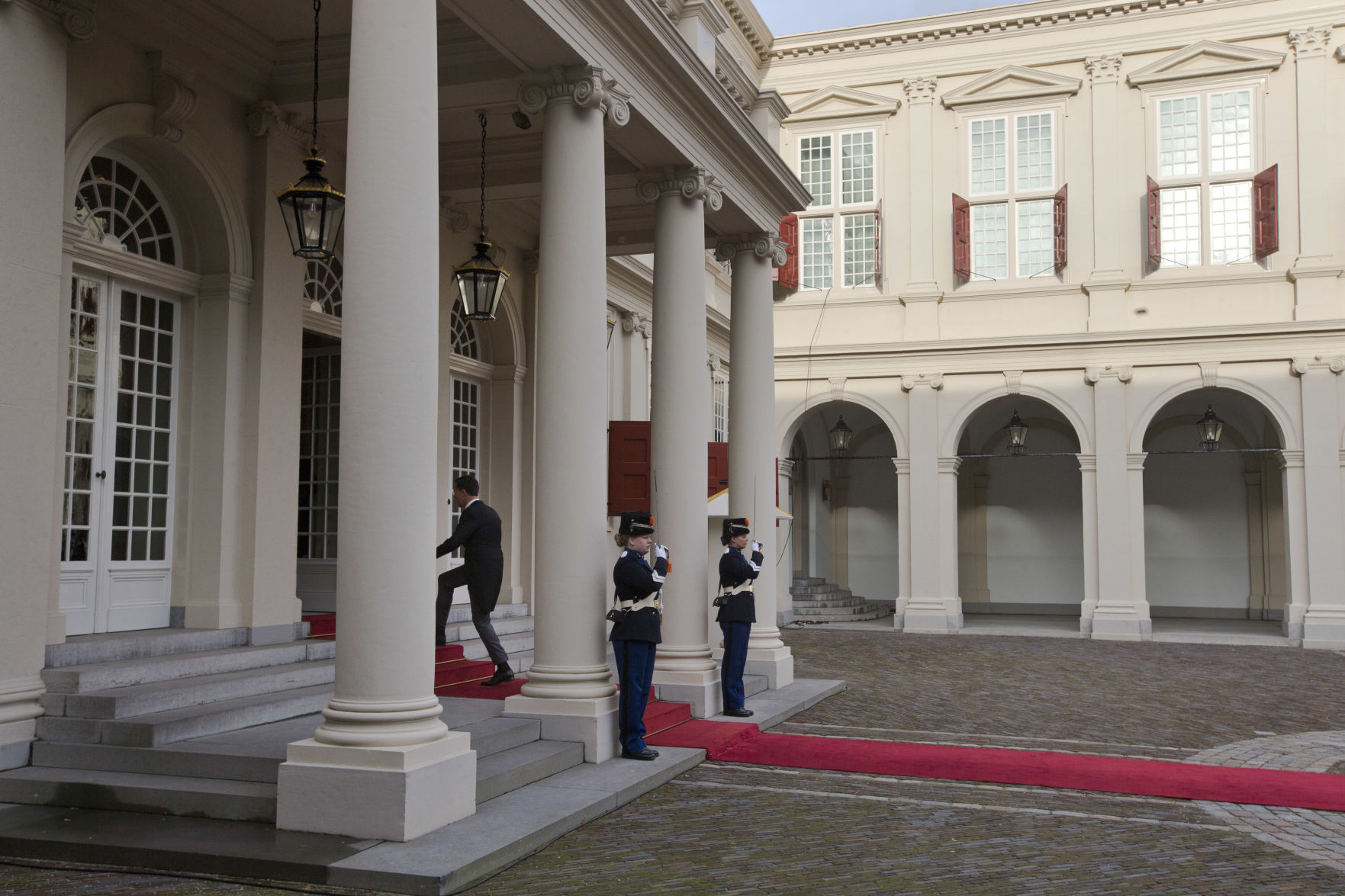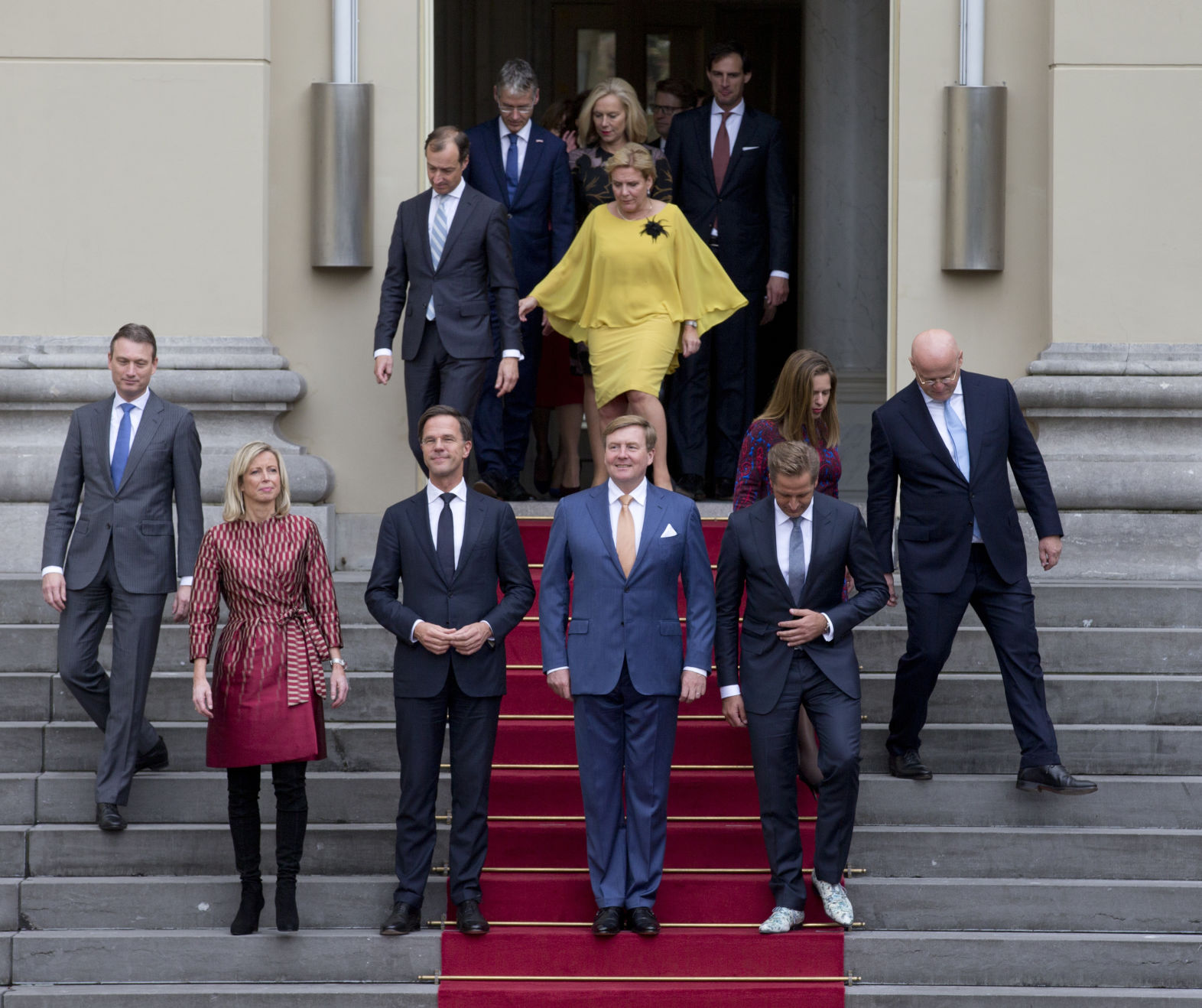THE HAGUE, Netherlands (AP) — Dutch Prime Minister Mark Rutte presented his third government Thursday, a new coalition that is set to move the Netherlands further to the right. The new center-right coalition is expected to focus on tax cuts
THE HAGUE, Netherlands (AP) — Dutch Prime Minister Mark Rutte presented his third government Thursday, a new coalition that is set to move the Netherlands further to the right.
The new center-right coalition is expected to focus on tax cuts after years of austerity and measures to contain immigration. Rutte jettisoned the socialists from his team in forming the new government.
The coalition is made up of Rutte’s liberal VVD, the centrist D66, the Christian Democrats and the faith-based Christian Union party.
The March 15 election gave the coalition a narrow one-seat majority in the 150-seat lower house of the Dutch parliament.
“That’s a very small majority. If only two members of the parliament, if they switch, that could mean the end of this government,” pollster and political commentator Maurice de Hond said.
European Council President Donald Tusk congratulated Rutte and said he was convinced the EU’s founding nation “will continue playing a dynamic and constructive role in the European Union.”
Beyond cutting taxes, Rutte is expected to try to toughen up immigration rules. That’s the issue on which Geert Wilders, the anti-Islam lawmaker whose Party for Freedom is the second-largest in parliament, built his base.
The coalition wants to stem the number of migrants seeking to resettle in the Netherlands for economic reasons. It also plans to cut the length of initial residency permits for successful asylum-seekers from five years to three, and do more to compel newcomers to better integrate into Dutch society.
To promote Dutch national identity, all school children will be taught the words and historical context of the national anthem.
Even if there a swing to the right, the new government still cherishes the Dutch brand of permissiveness.
It wants to sanction a small number of cannabis plantations as an experiment aimed at getting a grip on the huge illegal marijuana industry that supplies the famous Dutch cafes that are allowed to sell small amounts of pot.
———
Casert wrote from Brussels.





